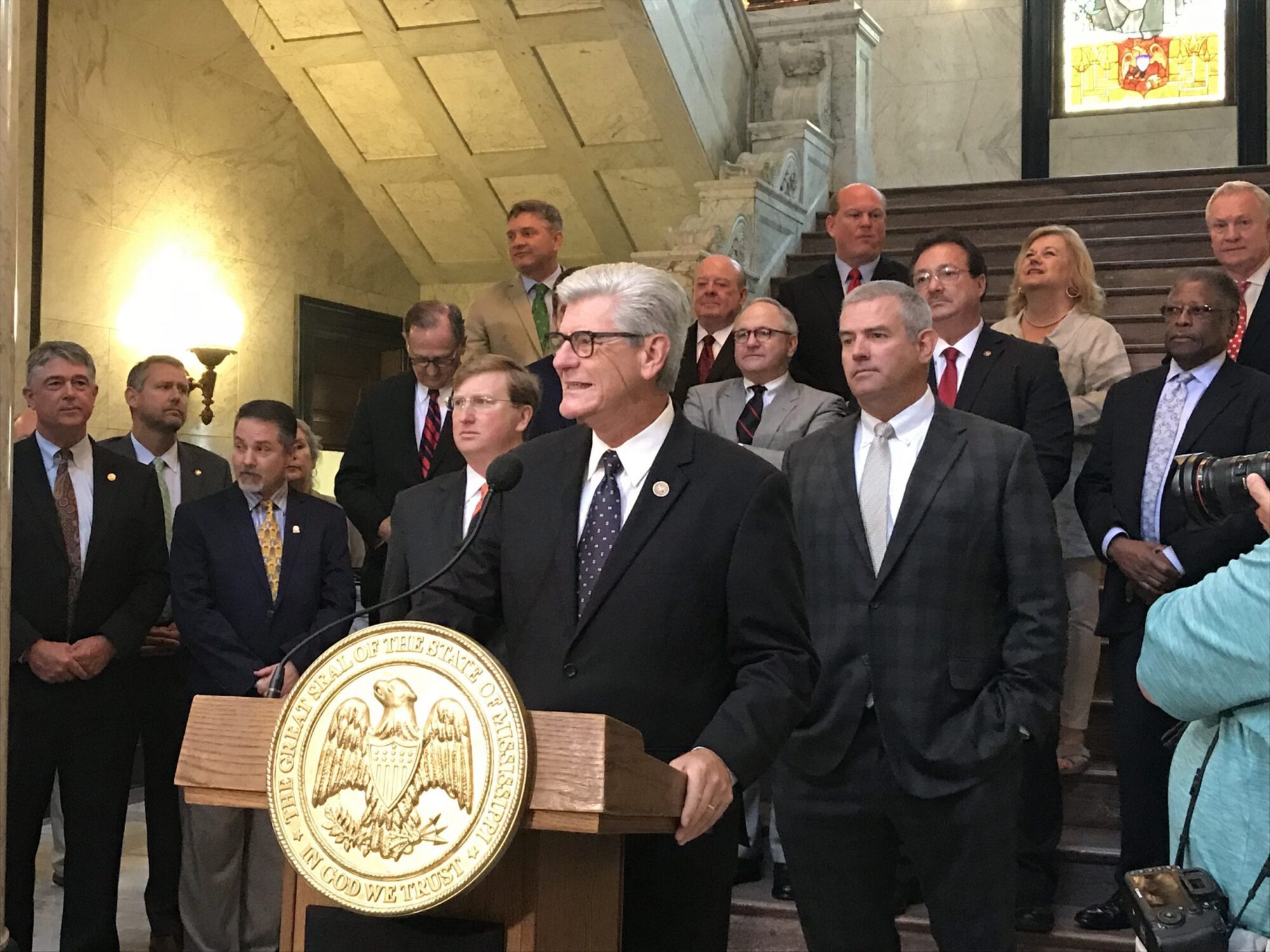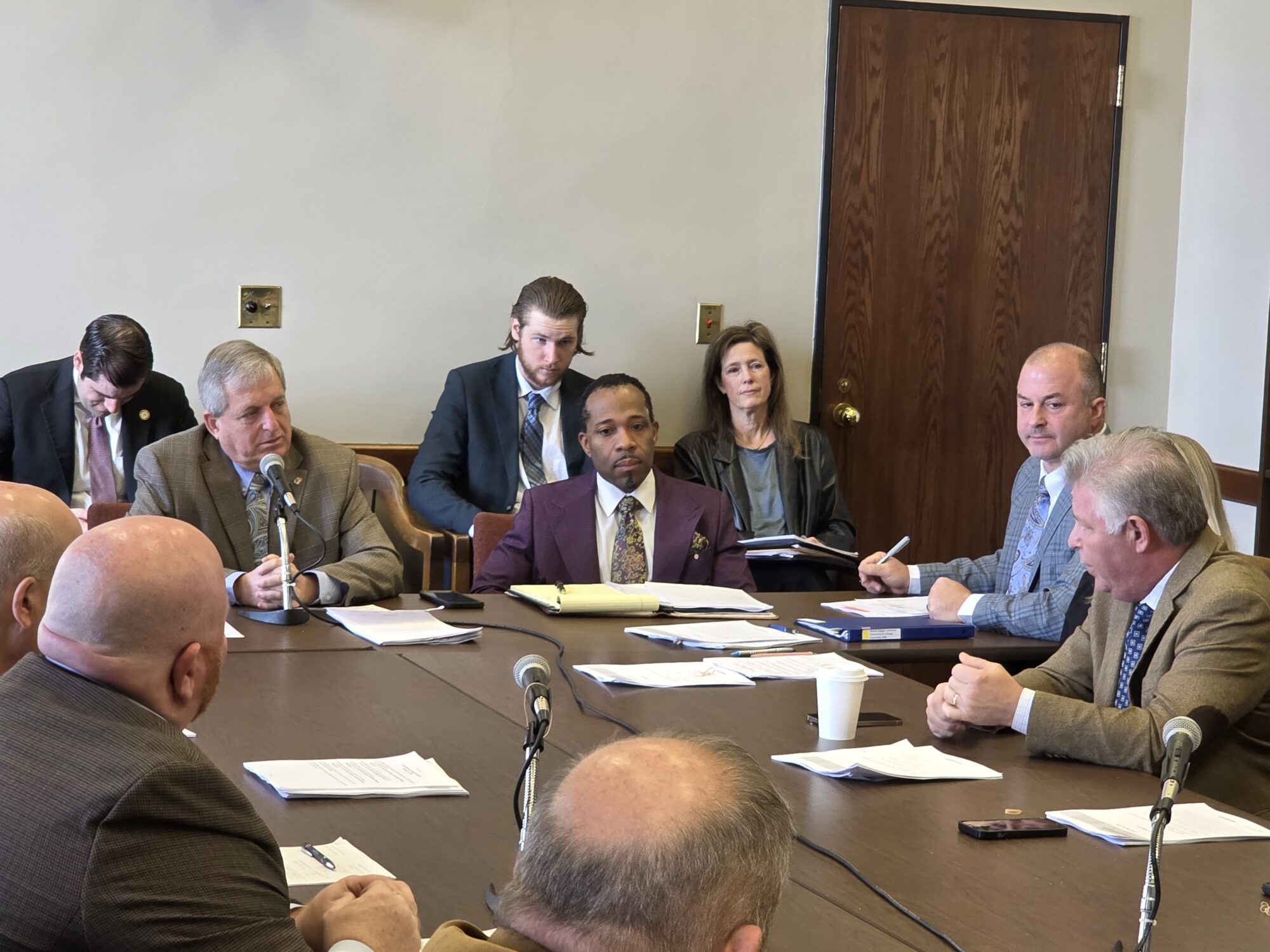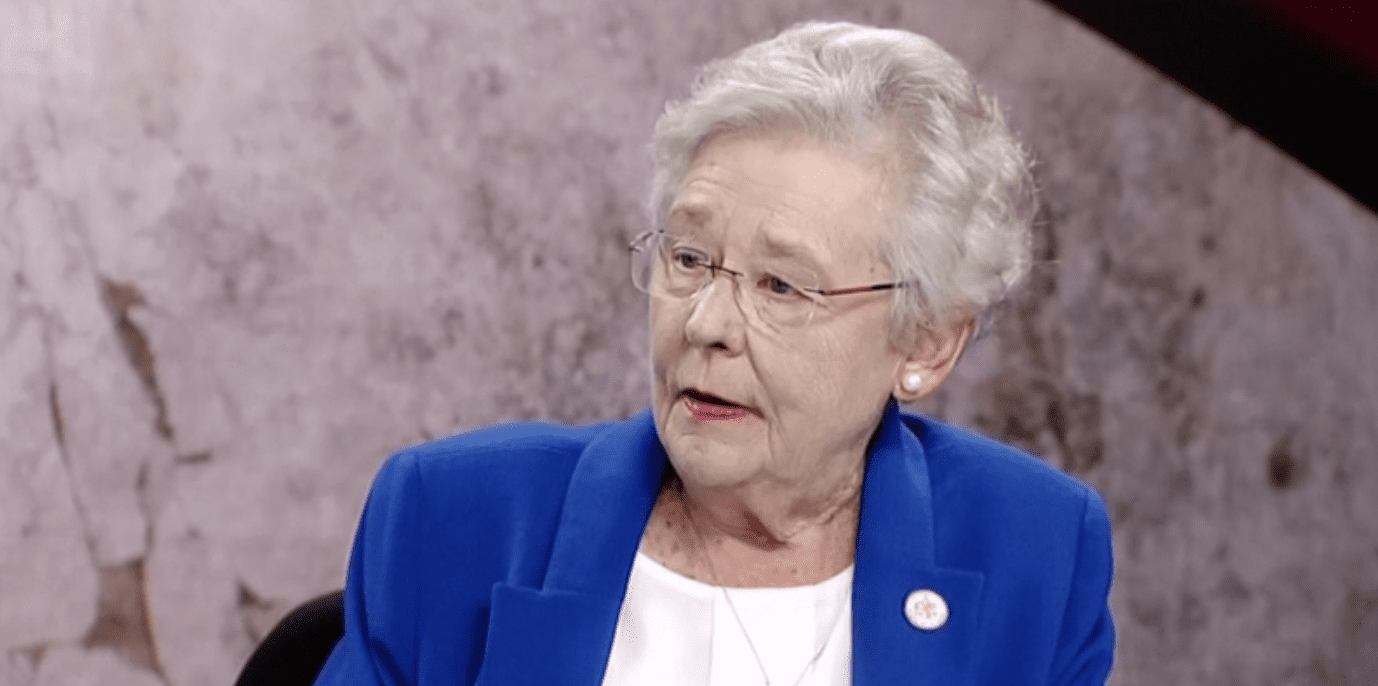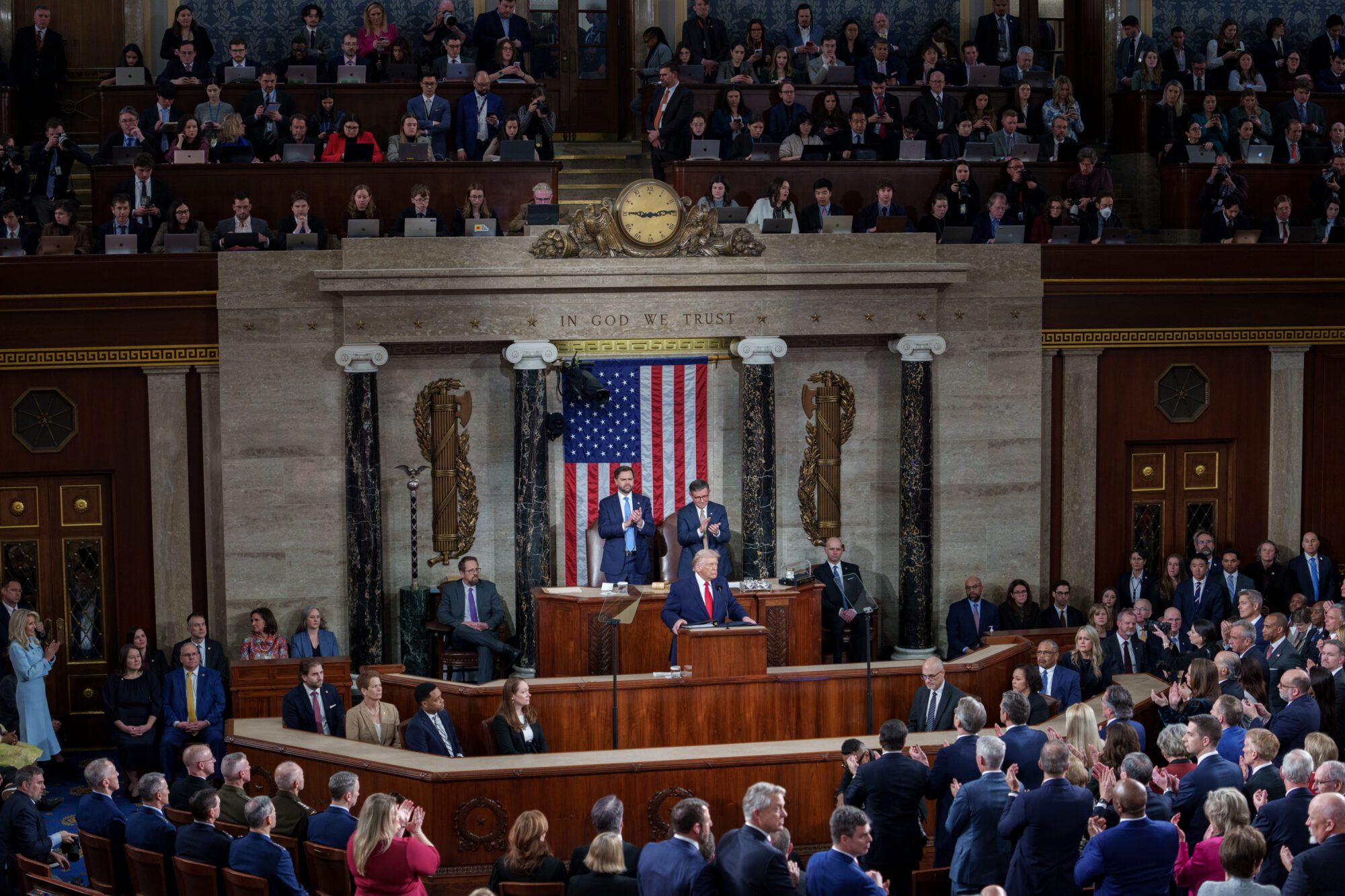
This morning, Governor Phil Bryant, Lt. Governor Tate Reeves, and the Speaker of the House Philip Gunn all joined together to discuss their optimism over the Mississippi Infrastructure Modernization Act of 2018 expected to be brought up in the House during the special session that began Thursday morning.
MONDAY
UPDATE 9:00 p.m.:
Day three of the 2018 special session showed major progress in the House and Senate on the bills at hand.
Things began quickly with the House passing HB 1 so now it will go to the governor, but as we rolled into the evening it came as somewhat of a surprise when they voted against the lottery bill, 54-60.
Both the Senate and the House brought up the over 130-page conference report around 7:00 p.m. Sen. Simmons went through some of the major changes in the report that includes, the changing of the name of the lottery bill to call it the “Alyce G. Clarke Mississippi Lottery Law.”
The language was included to take into consideration gender, race, and other demographics when selecting the board members for the lottery. One of the biggest issues for some members was that the organization was not included in the Public Records Act, Section 7 was revised to require public records and open meetings.
VLT devices will not be authorized under this lottery bill. The report also goes into a few more specifics on how lottery tickets can be sold and obtained. Some provisions were made to ensure that some funds would go to funding education needs in the state after $80 million in net proceeds are met.
But it seemed all of those changes were useless when, during the Senate debate, the House killed the bill before holding it on a motion to reconsider.
UPDATE 4:30 p.m.:
Around 4:15 p.m. the Senate invited conference on SB 2001, the lottery bill. Shortly after the conferees were announced.
The Senate conferees have just been announced: Willie Simmons, Terry Burton, and Josh Harkins. The House conferees are Richard Bennett, Cedric Burnett and Casey Eure #msleg SB 2001 heads to conference
— Yall Politics (@MSyallpolitics) August 27, 2018
UPDATE 12:07 p.m.:
House Bill 1, Mississippi Infrastructure Modernization Act, was sent back to the House from the Senate Monday morning. The Senate made several changes for which the House agreed and concurred.
The original ten year look back, which would not consider the top two and bottom two spending years in that time frame, was changed to a look back of 5 years, eliminating the top spending year of that time frame from consideration.
Bonds have also been eliminated from consideration, and would not be considered a penalty for the money counties and cities are being asked to spend.
The Senate version of the bill also created a board which will advise, but not require the recommendations be kept, toward MDOT action with the $50 million emergency fund being created. The board, meeting quarterly, will not be compensated for its time.
It was noted by Representative Perkins that of the ten-member board, nine were white males and one was a white female.
“Was there any consideration for inclusion or diversity from the Senate on this board?” Perkins asked. Rep. Trey Lamar, explaining the bill, said he could not speak to the Senate’s rationale of the board committee.
The bill still had a four year phase in, with 25% of the allocated funds being added each year, with 100% of the funding for cities and counties going on on the fourth year.
The way the $50 million emergency fund for MDOT will be spent will be determined by the legislature.
The motion to concur with the Senate passed 109-4. That was final passage for the bill it now heads to the Governor’s desk for his signature.
FRIDAY
UPDATE 4:15 p.m.:
The House has adjourned for the weekend and will report back to the Capitol on Monday at 10:00 a.m., meanwhile, Senators have finally begun debate on the transportation bill on the floor.
Sen. Bryan attempted to offer the same amendment he proposed in the committee to swap the distribution to 100% based on population versus a 50% sales tax and 50% population formula.
“If you stickily go by population only, then in future years you could actually lose money if the population declined,” said. Sen. Fillingane.
Sen. Bryan closed his amendment with, “If only red herrings were edible…..” but his amendment still failed.
The strike all amendment was adopted. The bill was passed with the only no votes coming from Sen. McDaniel, Sen. Bryan, and Sen. Dawkins.
UPDATE 3:20 p.m.:
In the House, SB 2001 was named after Rep. Alice Griffin Clark, who worked for 17 years on getting a lottery in Mississippi. The strike all with amendments was passed, but debate continued before final passage.
Rep. Bob Evans from Lawrence County said:
“This is an important and controversial bill… what bothers me is we’ve been allowed to discuss this for 17 minutes… for a bill of this importance. But the last hour, hour and a half on amendments. We’re discussing amendments on a bill that we don’t know what the bill is. We’re not supposed to pass it to see what’s in it. Because of lack of discussion, I’m going to vote against this bill.”
Rep. David Baria from Hancock county said there were 3,280 lines but only had the body only had seven minutes to discuss it.
“We’ve never had a bill on how the lottery would work,” said Baria. “We simply had a concept.”
Baria added there was “everything from soup to nuts is in this bill, but we have a lot of questions, and they’re not being answered,” and that this isn’t how the process is supposed to work.
“We’re putting a band-aid on a broken leg,” said Baria.
He stated there are no parameters on salary, questions on rather there are meetings after the first 18 months, questions as to whether or not the board is subject to background checks, etc.
Baria has always supported lottery bills… but won’t support one with no questions answered.
Rep. Steve Holland said the bill was “tainted and nasty” but that he supports it because the people want it.
With a vote of 70 yays, 43 nays, the bill passed and was immediately released to the Senate.
UPDATE 2:30 p.m.:
As the Senate wrapped up it’s committee discussion on #MIMA, the House has begun discussion on the strike all for SB 2001.
In the new intent statement, the corporate structure is stated as best for the lottery, with oversight provided from audits, reports, and disclosures.
The Lottery Board would have five appointed directors by the governor with consent of the senate. All members would serve for five years, and monthly meetings would be required for 18 months. Those meetings would be with the governor, with the chair calling the meetings thereafter.
Section 7 of the bill makes any corporation involved with the lottery and the lottery board subject to the Public Records Act.
Jay Hughes offered an amendment that until 6/30/2028, 50% of revenue from lottery should be paid into state highway warrant account and the other 50% goes to pay raises to teachers and teaching assistants.
Richard Bennett responded to the amendment: “I wish the gentleman had come to speak to me before, but he didn’t…. No one is more pro-education than me…. But we have a lot of issues in this state, and transportation is one of them. Kids are riding on busses hour, hour and a half longer than they should right now because of bridges being out…I ask you to oppose these amendments… we were brought here about transportation.”
Bennett said his reasoning is that federal legislature is working on match for infrastructure.
“This would be that match,” said Bennett.
While there were still more questions, a motion in the House to provide “unlimited time” for questions and answers on the bill before any more amendments are offered failed because it needed a 2/3rds vote.
One successful amendment was made by Rep. Barnes that would send lottery net revenue over $80 million to the Department of Education for PreK-4 funding, and it was adopted.
UPDATE 1:00 p.m.:
The Senate Finance takes it’s turn in 216 to discuss the House transportation bill, Mississippi Infrastructure Modernization Act of 2018. They’re offering a strike-all on the bill.
The first question raised after the overview of the bill came from Sen. Blount. He asked for a revenue estimate rolling over the next four years. Sen. Fillingane said he didn’t have those answers yet, but would work to get that information provided.
“Mr. Chairman I have some initial difficulties with the entire bill, would this be the appropriate time to bring them up,” said Sen. Bryan. He was given the floor and continued his questioning. His point, if no legislation is passed now, then all of this money just goes to the General Fund. He said he thinks lawmakers should step back and ask themselves if they were really going to help cities and counties with infrastructure what would they need to do? Bryan makes mention of the BP Money, something that is expected to be addressed before the special session is over.
“Take that money and put it all in a state infrastructure bank and issue bonds against it and allocate the money out to cities and counties appropriately,” Sen. Bryan said, this is what he would do.
He believes lots of the current legislation will create bond issues, and using the BP Money would allow the state to have some oversight ensuring that the funds are going to longterm infrastructure plans. He said this would be a better solution than the legislation at hand, at this time.
Amendments begin to be offered, first up is Sen. Bryan who offers one that would make the funds distributed based on population, minus the $3 million that is equally distributed to all the cities. His amendment failed.
Other amendments offered by Senator’s Watson, Polk, and more by Sen. Bryan that were denied.
The bill passed and moves to the full Senate.
UPDATE 11:00 a.m.:
The Gaming Committee met to discuss the lottery bill passed by the Senate late Thursday evening after nearly 4 hours of deliberation, which some would say was not enough.
Prior to the meeting, Governor Phil Bryant was questioned as to whether or not the lottery corporation should be exempt from open records and public meetings, he said that the corporation should be required to operate transparently to the public.
That would mean the bill, as is, would need to change.
Currently the Lottery exempts the corporation created to run the lottery from the Public Records Act. The rumor moving into the gaming committee meeting was that they would attempt to make an amendment on that clause.
Within the first few minutes of the meeting, the House offered their strike-all of the original bill (meaning many changes ahead). They immediately removed the exemption for the corporation from the Open Meetings Act and Public Records Act.
They have also tightened up the rules on lottery ticket purchase from slot machine type devices. This morning Gov. Bryant said he did not want those types of machines in gas stations or convenience stores.
Another revision, which was mentioned multiple times in the Senate yesterday, would ensure that the corporation headquarters was located in the state of Mississippi.
Interesting note… in the Lottery bill it makes note that the President of the corporation must be a MS resident, and they have the authority to hire staff etc, however, I cannot see a place where it specifies that the corporation must be located within Mississippi. #msleg
— Yall Politics (@MSyallpolitics) August 23, 2018
But in places like Section 4 and 16 the corporation would be subject to the court system within the county that the corporation is headquartered. So where would it be located? #msleg #lottery
— Yall Politics (@MSyallpolitics) August 23, 2018
An uncommon practice for lottery tickets is to charge a sales tax per each lottery ticket. The committee isn’t making a change to that requirement as of now, but the tax will be built into the cost of the ticket on the front end.
You can sense the hesitation in the room on the speed of passing this bill, but Rep. Bennett says this is urgent.
“We’ve got people in this state driving hours out of the way because they don’t have bridges they can use right now….this is an emergency right now.” said Rep. Bennett. He mentioned federal legislation that could pass and would allow for a 20% match on revenue generated by a lottery and by passing this legislation Mississippi could be ahead of that curve.
As expected, the question of why infrastructure needs are being put above education needs in the legislature was brought up at the committee meeting. Bennett said, those needs are important, but that funding a plan to fix infrastructure is currently taking precedent.
“There are other needs in order to get economic development to move, not only education, but other state workers that are making embarrassingly low wages who haven’t gotten raises in years,” said Rep. Bennett.
Things got heated after Chairman Casey Eure said he would not be accepting amendments during the committee meeting, but will wait till they get back out on the floor. The decision caught Rep. Willie Perkins off guard to which he said he would not be voting to move the bill forward.
The strike-all bill proposed by the House passed the Gaming committee and moves on to the floor.
Moments after the House Gaming committee meeting Rep. Busby, Chairman of Transportation, talked about the lottery bill now headed to the House floor #msleg #mslottery pic.twitter.com/Z24yNonHhe
— Yall Politics (@MSyallpolitics) August 24, 2018
UPDATE 9:00 a.m.:
Both the House and Senate convened today at 9:00 a.m., just moments later the House went into recess until 1:00 p.m., with a Gaming Committee meeting scheduled for 11:00. We are to expect some changes to the lottery bill before the House takes it up on the floor.
The Senate began their morning by recognizing current Miss Mississippi Asya Branch from Tupelo, Mississippi. As lawmakers moved to the side for hugs and a photos, Sen. Hob Bryan took to the podium to discuss the legislation that they passed yesterday, SB 2001, or the Mississippi Lottery Bill . He has made a motion to table the motion to reconsider.
“There is some reason the Governor called this special session so quickly…something’s rotten in Denmark and what is rotten is the structure of this (lottery) corporation,” said Sen. Bryan.
By a roll call vote, the motion carries to reconsider. The Senate then moved into a recess subject to call.
THURSDAY
UPDATE 4:00 p.m.:
The Senate has been discussing the lottery bill for nearly two hours now. Among many of the questions include some from Senator Angela Hill who points out that there is no specific language in the bill that specifies how the corporation will be created. Sen. Simmons responded that the Governor would appoint the board who would then select a President. Within the first few sections of the bill it outlines the President’s responsibilities that include selecting a staff. Sen. Briggs Hopson asked whether or not the creation was the best way to go about forming a state lottery.
Sen. Hopson asks whether it would be more economical to include the lottery under the Mississippi Gaming Commission, or some other entity already in place, versus creating an entire new corporation. #msleg #MSlottery Simmons says @PhilBryantMS didn’t want to add to state payroll.
— Yall Politics (@MSyallpolitics) August 23, 2018
“Would be more economical to include the lottery under the Mississippi Gaming Commission, or some other entity already in place, versus creating a quasi-governmental agency,” said Hopson. Sen. Simmons said that idea was discussed but that Governor Bryant didn’t to want to add the entity to the state payroll. Questions murmured across the Senate floor circulated around the public records act and whether or not the contracts that the Lottery Corporation signs, financial statements, employee salary schedule and it’s annual reports and meeting minutes would be available under the law. Senators begin making amendments to the bill, to start there were 7 on the desk to go through. With amendments from Senators Horhn, Hill, D. Simmons, and Hill, only one survives and moves forward and that is Sen. Hills. She proposed that the board of directors family members be subject to the same stipulations as any employees wherein they cannot have any direct financial ties to vendors.
The seventh amendment is offered by Sen. @angelabhill1 adds the members of the board of directors to this list of folks whose family members cannot have a direct financial interest with any of the vendors #msleg #mslottery
— Yall Politics (@MSyallpolitics) August 23, 2018
As the bill moves to a vote Sen. Hob Bryan urges lawmakers one last time not to pass a lottery bill, specifically not to pass this lottery bill. “I don’t think this is the way we would have structured this if we had time to look at it and really think about what’s going on,” said Sen. Bryan. The Senate voted to pass the bill on a vote of 30 to 20. The lottery bill will now head to the House The House and Senate are adjourned until 9:00 a.m. Friday morning.
UPDATE 3:00 p.m.:
The Senate has presented SB 2001, the lottery bill, on the floor. Sen. Simmons made a motion to wave the rules and take up SB 2001 on the floor today, which requires a two thirds vote to do so. After a brief recess to discuss the legality of the vote, the motion passed an the Senate began discussions on the lottery bill.
UPDATE 1:00 p.m.:
The Senate Transportation Committee met at 1:00 to discuss SB 2001, Lottery bill. Sen. Willie Simmons went section by section in a very detailed analysis of the bill. The lottery would be set up as a private run corporation with a president and five directors. The board is responsible for establishing general administrative policies, overseeing major procurements and any contract appeals, and oversight of the budget.
“This bill is about transparency, we aren’t trying to hide anything,” said Sen. Simmons.
Simmons said that while they are establishing a private corporation, legislators will still be heavily involved. While the corporation is not required to adhere to public records reports, they are required to provide periodic financial reports to the Governor, Lieutenant Governor, the Speaker of the House, the State Auditor, PEER and the Commissioner of Revenue. An interesting point to note, the bill specifies that the president of the corporation must be Mississippi resident and has the power to hire staff, manage the corporation, enter into contracts under board policy, establish a budget, set salaries and require bonds for staff. However, there is no mention in the bill that the operation must reside in the state of Mississippi, under Section 4 and Section 16, the corporation is accountable to the court system in the county in which it resides.


 Sen. Hob Bryan offered several amendments on the bill that included placing the headquarters for the corporation be located in Hinds County, and that the lottery tickets include the national mantra of “In God We Trust.” All of his offered amendments failed. In his final remarks on the bill, the two brings up the point that the bill doesn’t clarify that the headquarters even have to be located in Mississippi, proving to him that this is an entity that is out of our control. “I think the bill is a bad bill,” said Sen. Bryan. Upon final passage, the bill has passed the lottery bill in the Senate Transportation Committee.
Sen. Hob Bryan offered several amendments on the bill that included placing the headquarters for the corporation be located in Hinds County, and that the lottery tickets include the national mantra of “In God We Trust.” All of his offered amendments failed. In his final remarks on the bill, the two brings up the point that the bill doesn’t clarify that the headquarters even have to be located in Mississippi, proving to him that this is an entity that is out of our control. “I think the bill is a bad bill,” said Sen. Bryan. Upon final passage, the bill has passed the lottery bill in the Senate Transportation Committee.
SB 2001 the #MSlottery bill has passed the Senate Transportation committee. It now heads to the Senate floor. #msleg
— Yall Politics (@MSyallpolitics) August 23, 2018
In the House, House Bill 01, a bill to determined using a formula and an average is taken over a decade for municipalities for infrastructure is presented. For municipalities, the top two years and bottom two years over a ten year period will be thrown out and the average would determine the level of funding. This formula would not forget cities that do not have a sales tax or population base, they will still get money from the formula. This bill would be phased in over a four year period. Municipalities would receive 25% each year, and the full amount would go into effect after four years. The money would come from things like sports betting or a lottery and 35% of the currently billed use tax.
In the bill, $3 million will come off the top of a $50 million dollar fund and would be divided over each Mississippi city. So, you’re looking at $10,000 annually for infrastructure for each city, the rest divided up according to the formula.
In addition, there will be a $150 fee for electric cars, $75 fee for hybrid cars–billed annually when car tags are renewed. This is on an indexed scale, meaning those fees could increase.
Rep. Foster offered an amendment to remove the indexing on taxes of $75 a year on hybrid vehicles and $150 a year on electric vehicles. The amendment failed.
Counties and cities asked to still put in their contributions for infrastructure for a “fail-safe’ feature in the bill that would keep funds from being misused.
“We are putting safety measures in the bill to ensure cities are contributing money to their infrastructure,” said Rep. Lamar. The fear was that a city would receive $100,000 for infrastructure from the state, and then spend the money they were using toward infrastructure from their own fund elsewhere.
After an attempt to make several amendments, the bill was passed 108-5 on a reverse repealer, meaning regardless of the Senate’s action it will come back to the House.
One successful amendment that wasn’t tabled was pitched by Rep. Steve Holland. He’s asking that the $50 million dollars in the special fund for infrastructure be split between all 82 counties. Initially, a very similar amendment was handed down by Rep. Stacey Wilkes of Pearl River County, but it failed. With Holland, a roll-call vote was demanded, and it passed 55-54.
The House is now in recess until 5:00 p.m.
UPDATE 10:00 a.m.:
The House and Senate convene for a matter of minutes. During that time Senator Moran files SB 2001, the lottery bill. Both then recess subject to call. Within the hour the Senate returns and schedules a transportation meeting where it is suspected that they will discuss the proposed lottery bill at 1:00 and then reconvene on the floor at 2:00 p.m.
UPDATE 12:00 p.m.:
The House reconvenes to dismiss to a Ways and Means committee meeting where HB 1, the omnibus Mississippi Infrastructure Modernization Act bill is discussed. The bill would utilize a use tax on online tax revenue and would issue roughly $500 million in bonds for statewide infrastructure needs. The bill passes through the committee and is on to the House Floor.
In the four year phase in, municipalities will get 25% of funding over four years, then the full amount every year after that. #msleg #specialsession2018 #HB01
— Yall Politics (@MSyallpolitics) August 23, 2018
Contributions by Courtney Carter










